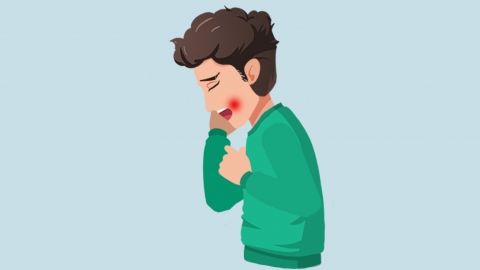What to do about tooth nerve pain
Tooth nerve pain may be caused by tooth growth, tooth wear, pulpitis, periodontal disease, etc. It can usually be alleviated by wisdom tooth extraction, adjusting brushing methods, root canal treatment, or apical surgery. If abnormalities occur, timely medical attention is recommended. Detailed explanations are as follows:

1. Tooth growth: During the eruption of wisdom teeth, due to insufficient space or abnormal growth direction, the wisdom teeth may compress surrounding teeth and nerves, causing tooth nerve pain. This generally can be relieved by extracting the wisdom tooth or undergoing orthodontic treatment to alleviate pressure on the nerves.
2. Tooth wear: Long-term chewing of hard objects, improper brushing techniques, or poor tooth occlusion may cause tooth surface wear, exposing dentin and stimulating nerves, leading to pain. Adjusting brushing habits, using desensitizing toothpaste, and dental restoration can help reduce nerve irritation.
3. Pulpitis: Dental caries or dental trauma may lead to infection or damage of the dental pulp tissue, causing pulpitis and resulting in tooth nerve pain, including spontaneous pain, night pain, and sensitivity to hot or cold stimuli. Root canal treatment is generally recommended to remove infected pulp tissue, followed by filling and restoration.
4. Periapical periodontitis: If pulpitis is not treated promptly, inflammation may spread to the periapical tissues, causing periapical periodontitis and resulting in tooth nerve pain, often accompanied by biting pain, swollen gums, or pus discharge. Treatments may include root canal therapy or periapical surgery to eliminate inflammation and restore tooth function.
5. Periodontal disease: Periodontal disease is a chronic inflammation of the gums and periodontal tissues caused by dental plaque, which may result in alveolar bone resorption and gum recession, exposing the tooth roots and nerves, thereby causing pain, often accompanied by symptoms such as gum bleeding, redness, swelling, and bad breath. Doctors may recommend basic periodontal treatment, such as scaling and root planing, to remove dental plaque and calculus.
In daily life, maintaining good oral hygiene, undergoing regular dental checkups and cleanings, and promptly identifying and treating oral problems can help reduce the occurrence of tooth nerve pain.





